The Philippine Space Agency (PhilSA) conducted an in-depth knowledge-sharing and capacity-building on space science technology applications (SSTA) during the Satellite Data Processing Training Session (SDPTS) under the SIKAP+, or the Space Infrastructure, Know-How, & Applications Acceleration through Promotion & Training project, from 09 to 11 May 2023 at the Joy~Nostalg Hotel & Suites Manila, Pasig City.
The three-day hybrid workshop equipped participants with knowledge and skills to utilize Earth observation (EO) datasets and facilitated exchange of resources and techniques in remote sensing (RS) and geographic information system (GIS). A total of 47 on-site participants and over 100 online participants took part in the SDPTS from all over the Philippines and Asia, composed of representatives from national and regional government offices, non-governmental organizations (NGO), academic institutions, and enterprises. PhilSA scientists and researchers with expertise in RS and GIS applications led the lectures and facilitated hands-on practical exercises for the attendees.
Theoretical discussions covered image pre-processing, land cover quality mapping, water and coastal applications, and disaster risk management applications. Corresponding hands-on practical exercises were administered for application and integration of the lessons discussed utilizing RS tools such as geographic information system (QGIS), SAGA, Python, Jupyter, Sentinel Application Platform (SNAP), and Google Earth Engine (GEE).
PhilSA Director General Joel Joseph S. Marciano Jr. emphasized the importance of the workshop in reinforcing the space data value chain through sharing the capability to obtain and use space data, “We all grow as a stronger community that will drive to work together to derive even further benefits from space capabilities. This is bringing space closer to communities through capabilities such as processing satellite images for insights and intelligence that can be acted on by end-users.”
DG Marciano further explained, “Only when these insights, information, and intelligence are used, we can create value and benefit […] intended for agriculture, disaster risk reduction, environmental protection, resource assessment, and maritime domain awareness.”
Director Franz A. de Leon of the Department of Science and Technology-Advanced Science and Technology Institute (DOST-ASTI), in a pre-recorded message, encouraged participants to engage in discussions and collaborations that will spark research work and technological innovation, “As we move forward, let us continue to invest in capacity building projects that enable our communities to harness the power of space data and infrastructure. We need to encourage more people to pursue careers in space technology and provide them with necessary support to do so.”
For more exchange of information, participants from Nepal, Vietnam, and Indonesia presented their RS best practices, applications, and their plan to mobilize the information acquired during the SDPTS.
A Learning Management System (LMS), hosted on the Philippine Research, Education, and Government Information Network (PREGINET) was developed for the training to enable connectivity and catalyze research among academic, government, and research institutions. This included the discussion modules and assessments to gauge the participants’ mastery of the subject.
PhilSA recognizes the importance of these workshops that provide participants with the capability to utilize information from space to address societal concerns and apply these in their communities.
About SIKAP+
Launched last May 2022, the SIKAP+ project aims to expand and strengthen space science research and cooperation in Asia through know-how transfer and sharing of best practices among operators of satellite ground receiving stations and amateur radio satellites, Earth observation and remote sensing practitioners, and new and emerging actors in the space community. This is co-implemented by DOST-ASTI and the University of the Philippines Diliman-Electrical and Electronics Engineering Institute (UP EEEI).
SIKAP+ is made possible following PhilSA’s success in obtaining a sub-grant from the Asi@Connect Project funded by the European Union and managed by the Trans-Eurasia Information Network*Cooperation Center (TEIN*CC). The Asi@Connect Project interconnects universities and research centers in 24 economies/countries across the region by providing high-speed internet connectivity for research and education.
The first SIKAP+ training entitled, “Ground and Amateur Radio Operation for Satellite Communication Training Session” was virtually conducted last August-September 2022. SDPTS is the second installment of the training series.
About Asi@Connect and TEIN*CC
Asi@Connect
The EU co-funded Asi@Connect project provides a dedicated regional high capacity and high-quality internet network, Trans-Eurasia Information Network (TEIN), for research and education(R&E) communities across Asia-Pacific and Europe, and leverages e-infrastructures developed for public service projects. This project marks the 4th phase of EU funding to the Trans-Eurasia Information Network (TEIN) programme which was launched as an Asia-Europe Meeting (ASEM) Initiative in 2000; it successfully established a regional research and education internet network from scratch in 2004 and progressively expanded its geographical footprint over the years. Asi@Connect takes over the R&E backbone from TEIN-4, the most recent phase in the TEIN Initiative and will continue to connect regional researchers with their counterparts in Europe via GÉANT, the world’s most advanced international research and education network, providing the Asia-Pacific countries with a gateway for global research collaboration. Asi@Connect receives €20 Million funding from the EU up to 2023 with additional financial contributions from the Asian partners.
The Asi@Connect partners are the National Research & Education Network associations (NRENs) of Afghanistan, Australia, Bangladesh, Bhutan, Cambodia, China, Hong Kong, India, Indonesia, Japan, South Korea, Laos, Malaysia, Mongolia, Myanmar, Nepal, New Zealand, Pakistan, the Philippines, Singapore, Sri Lanka, Chinese Taipei, Thailand, and Vietnam.
TEIN Cooperation Center (TEIN*CC)
Asi@Connect is managed by the regional networking organisation TEIN*Cooperation Center (TEIN*CC). TEIN*CC was endorsed by the ASEM8 Summit in Brussels in October 2010. It was established in Seoul, Korea in August 2011 as a non-profit Foundation Corporation to take responsibility for the 4th phase of the TEIN project which started in April 2012. The Korean Government, the Ministry of Science and ICT, supports TEIN*CC operation and management, and the Seoul Metropolitan Government is providing office facilities. TEIN*CC actively collaborated with other regional R&E network organisations around the world to provide better opportunities for research and education to the TEIN community. For more information, visit www.teincc.org, or follow them on Twitter (@AsiaConnectNews) and Facebook (@AsiaConnectProject).
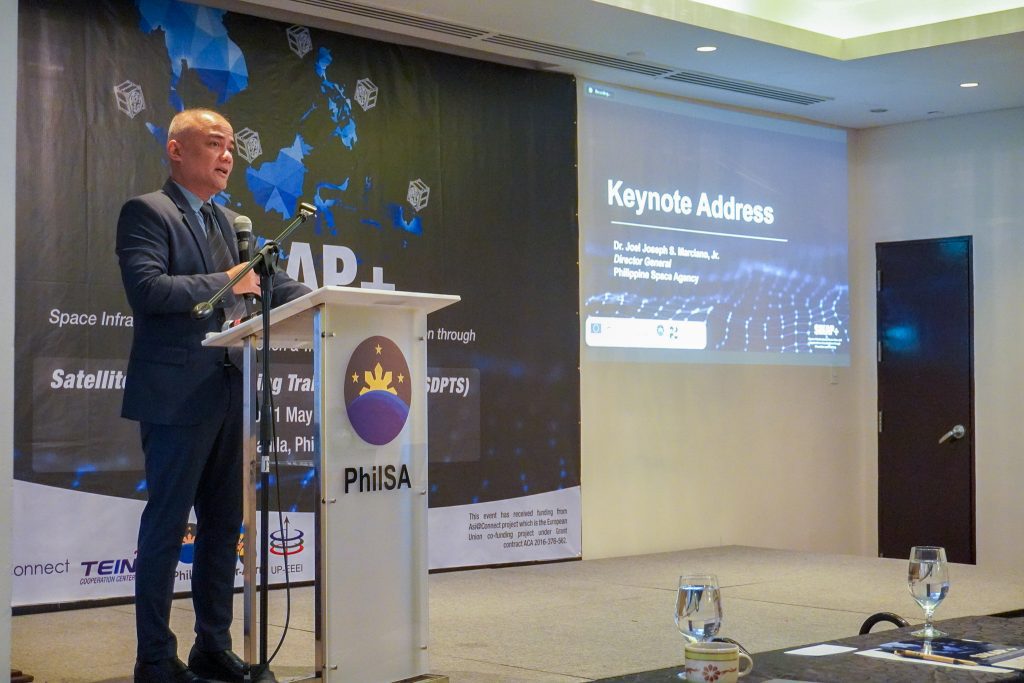
PhilSA Director General Joel Joseph S. Marciano, Jr. delivers the keynote address and welcomes the participants.
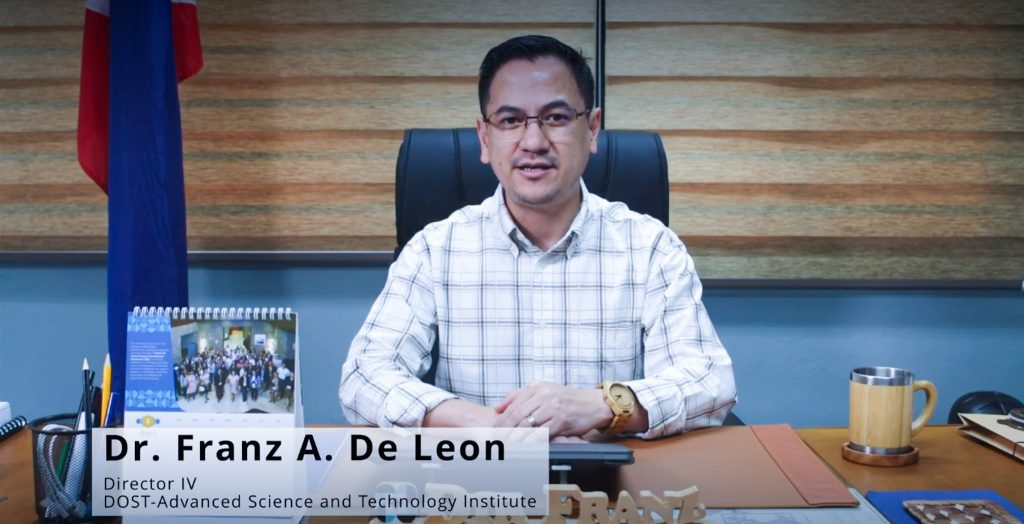
Director Franz A. de Leon delivers the message from DOST-ASTI, one of the co-implementors of the SIKAP+ Project.

PhilSA Science Research Specialist Mark Jayson Felix starts the theoretical discussions with an introduction to satellite RS and its applications.
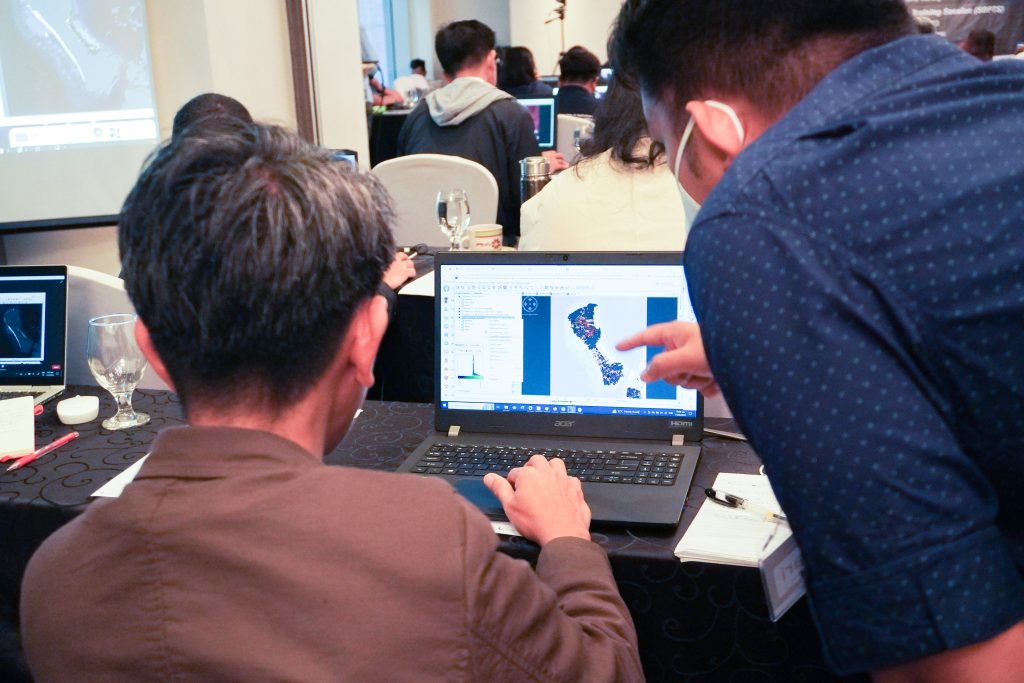
Participants utilize various RS and GIS tools during the workshop. Hands-on exercises were done for various applications using satellite data, such as mapping of burned areas and crop damage assessment.
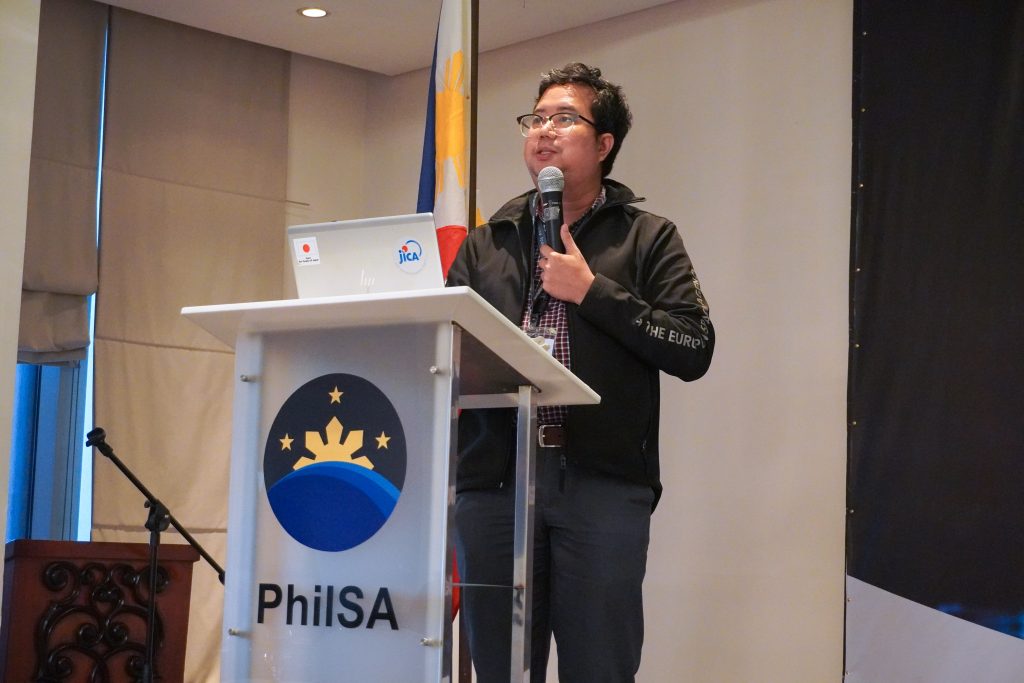
PhilSA Space Infrastructure Information Bureau Director Ariel C. Blanco delivers the closing remarks and provides a recap of the 3-day training session.
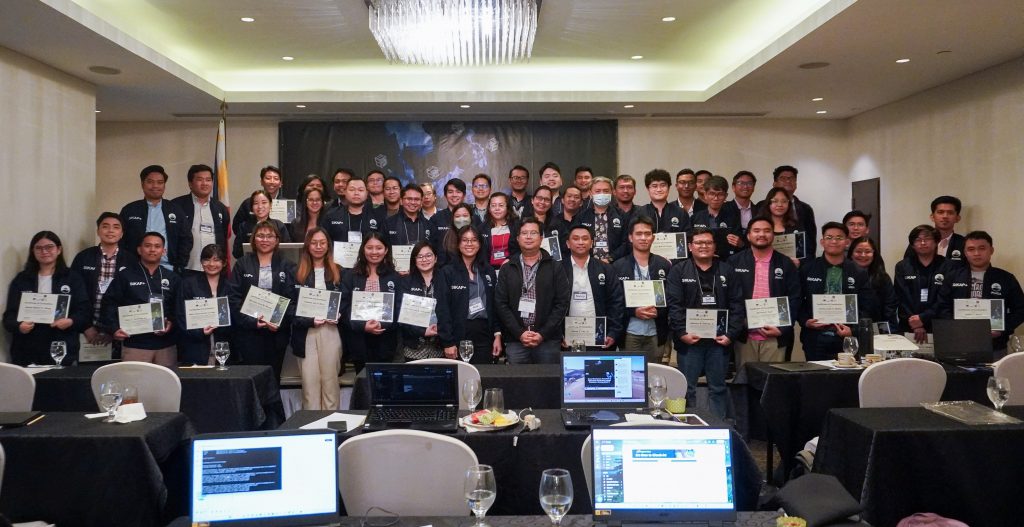
SIKAP+ SDPTS on-site participants proudly show their certificates of completion at the end of the 3-day SDPTS.




